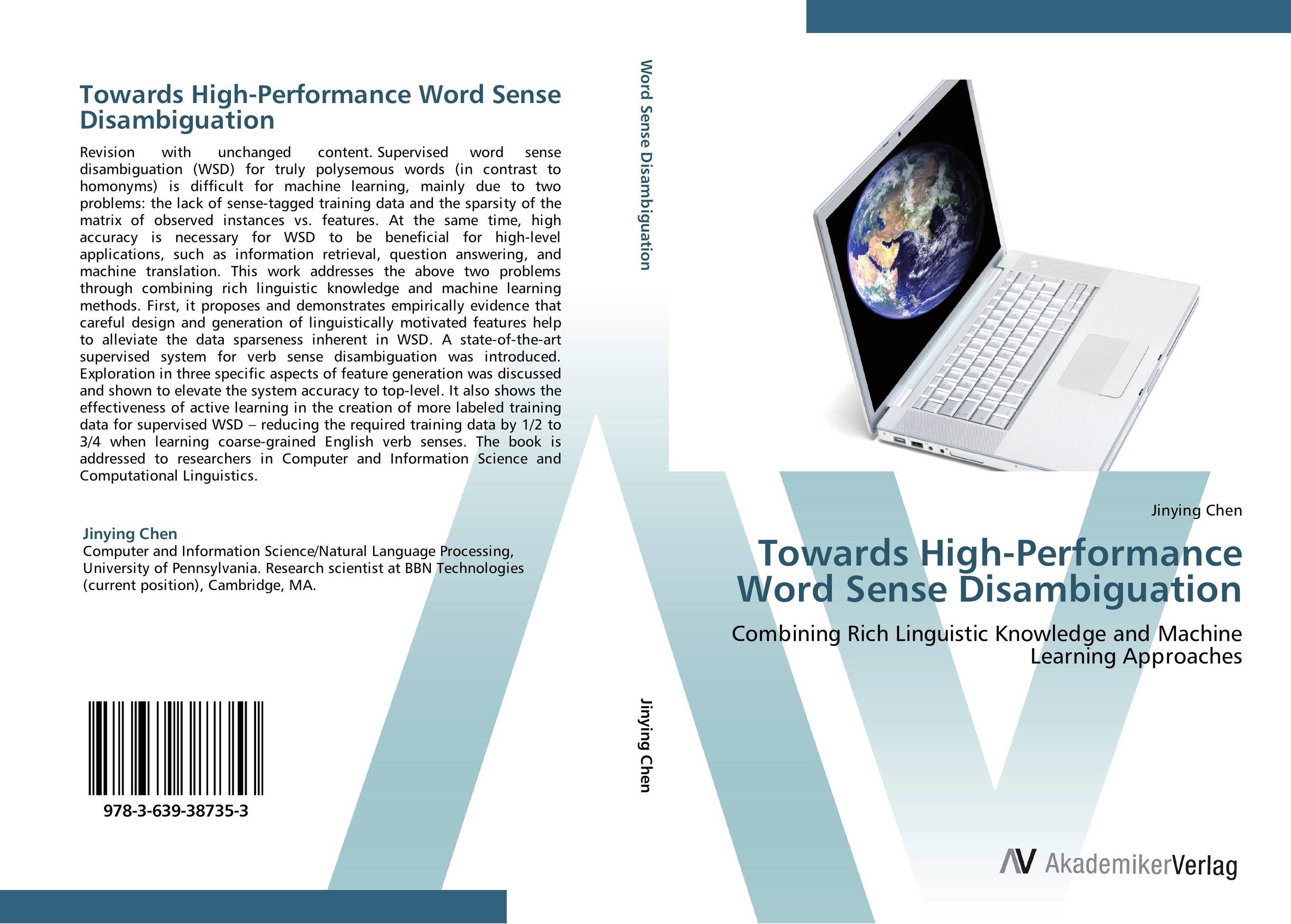| Поиск по каталогу |
|
(строгое соответствие)
|
- Профессиональная
- Научно-популярная
- Художественная
- Публицистика
- Детская
- Искусство
- Хобби, семья, дом
- Спорт
- Путеводители
- Блокноты, тетради, открытки
Towards High-Performance Word Sense Disambiguation. Combining Rich Linguistic Knowledge and Machine Learning Approaches

В наличии
| Местонахождение: Алматы | Состояние экземпляра: новый |

Бумажная
версия
версия
Автор: Jinying Chen
ISBN: 9783639387353
Год издания: 2012
Формат книги: 60×90/16 (145×215 мм)
Количество страниц: 188
Издательство: AV Akademikerverlag
Цена: 44376 тг
Положить в корзину
Ожидает определения тематики
Код товара: 874224
| Способы доставки в город Алматы * комплектация (срок до отгрузки) не более 2 рабочих дней |
| Самовывоз из города Алматы (пункты самовывоза партнёра CDEK) |
| Курьерская доставка CDEK из города Москва |
| Доставка Почтой России из города Москва |
Аннотация: Revision with unchanged content. Supervised word sense disambiguation (WSD) for truly polysemous words (in contrast to homonyms) is difficult for machine learning, mainly due to two problems: the lack of sense-tagged training data and the sparsity of the matrix of observed instances vs. features. At the same time, high accuracy is necessary for WSD to be beneficial for high-level applications, such as information retrieval, question answering, and machine translation. This work addresses the above two problems through combining rich linguistic knowledge and machine learning methods. First, it proposes and demonstrates empirically evidence that careful design and generation of linguistically motivated features help to alleviate the data sparseness inherent in WSD. A state-of-the-art supervised system for verb sense disambiguation was introduced. Exploration in three specific aspects of feature generation was discussed and shown to elevate the system accuracy to top-level. It also shows the effectiveness of active learning in the creation of more labeled training data for supervised WSD – reducing the required training data by 1/2 to 3/4 when learning coarse-grained English verb senses. The book is addressed to researchers in Computer and Information Science and Computational Linguistics.
Ключевые слова: Word Sense Disambiguation, Natural Language Processing, Computational Linguistics, supervised learning, Linguistically Motivated Features, Feature Engineering, Feature Generation, High-Performance Word Sense Disambiguation System



